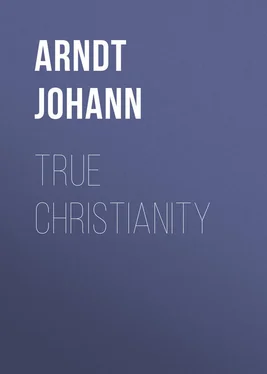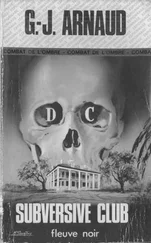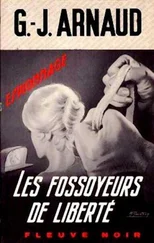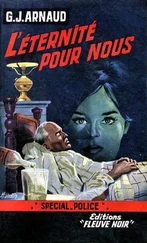Johann Arndt - True Christianity
Здесь есть возможность читать онлайн «Johann Arndt - True Christianity» — ознакомительный отрывок электронной книги совершенно бесплатно, а после прочтения отрывка купить полную версию. В некоторых случаях можно слушать аудио, скачать через торрент в формате fb2 и присутствует краткое содержание. ISBN: , Жанр: foreign_antique, foreign_prose, на английском языке. Описание произведения, (предисловие) а так же отзывы посетителей доступны на портале библиотеки ЛибКат.
- Название:True Christianity
- Автор:
- Жанр:
- Год:неизвестен
- ISBN:http://www.gutenberg.org/ebooks/34736
- Рейтинг книги:5 / 5. Голосов: 1
-
Избранное:Добавить в избранное
- Отзывы:
-
Ваша оценка:
- 100
- 1
- 2
- 3
- 4
- 5
True Christianity: краткое содержание, описание и аннотация
Предлагаем к чтению аннотацию, описание, краткое содержание или предисловие (зависит от того, что написал сам автор книги «True Christianity»). Если вы не нашли необходимую информацию о книге — напишите в комментариях, мы постараемся отыскать её.
True Christianity — читать онлайн ознакомительный отрывок
Ниже представлен текст книги, разбитый по страницам. Система сохранения места последней прочитанной страницы, позволяет с удобством читать онлайн бесплатно книгу «True Christianity», без необходимости каждый раз заново искать на чём Вы остановились. Поставьте закладку, и сможете в любой момент перейти на страницу, на которой закончили чтение.
Интервал:
Закладка:
§ 16. The catalogue of the difficulties which awaited him, is not yet exhausted. We have to add, as a part of the history of the times, when an extraordinary number of political and ecclesiastical contentions prevailed, the excitement of feeling which certain differences of doctrine between the Lutherans and the Reformed engendered, and which would never have risen to the fearful height in which history now exhibits it to us, if political power, controlled alternately by the two religious parties in some of the German principalities, had not been invoked by them. The awful death by fire, which terminated the career of Servetus (Oct. 27, 1553, two years before the birth of Arndt, and more than six years after the death of Luther), was decreed by the civil authorities of Geneva, but was sanctioned by Calvin and even the gentle Melanchthon – a sad example of the clouded views of men at that time respecting religious liberty and the right of civil rulers to punish men for their errors in the faith.
§ 17. In the Palatinate (the ancient Pfalz , the territories of which are now distributed among Bavaria, Prussia, etc.) the Lutheran Church had been established, and popery ceased to exist. But in 1560, a few years after Arndt's birth, the Elector, Frederick III., withdrew from the church, and adopted the Reformed faith and usages. His successor, Lewis VI., endeavored to restore the ascendency of Lutheranism; but after his brief reign, the authorities which succeeded, established “Calvinism” (the term employed in Church History) on a permanent basis. A similar ecclesiastico-civil revolution occurred in Bremen in 1562; fourteen Lutheran pastors and the Lutheran members of the City Council were expelled, and the city became Reformed. Such changes occurred elsewhere. Both parties were undoubtedly more or less honest in adhering to their doctrinal views; and both claimed the right to depose and exile those of an opposite faith, whenever the civil and political power was, in either case, directed by them.
§ 18. Let it now be remembered that these contending Protestants, Lutheran and Reformed or Calvinistic, were led by men respectively, who were confessedly intelligent, learned, and endowed with great abilities, many of whom were not only honest in expressing their convictions, but also conscientious in their conduct, whether they were governed by an erring or an enlightened conscience. That the latter is historically true, is demonstrated by their readiness, when they lost power, to submit to imprisonment or exile, rather than to renounce their respective creeds. They were all too well acquainted with Bible truth to look with other feelings than with horror on the popish creed. But while their own Protestant creed was very precious to their souls, they could not tolerate any departure from it, even if that departure was not in the direction “towards Rome.” That departure must, as they judged, necessarily be equivalent to a denial of God's truth, as they believed that they had found it in the Bible. Thus all were alike sensitive – all seemed to feel that if they tolerated any error, that error could not be trivial – it was, as far as it extended, a denial of God's truth. Could they safely assume the shame and guilt of such a sin? We may add, that we are here speaking only of the honest leaders of the Lutherans and the Reformed, of whom each man judged and acted for himself, as one who was accountable to God. No honest Reformed theologian would have screened a Reformed heretic from condemnation; and no honest Lutheran would, for a moment, have tolerated a nominal Lutheran, who rejected any part of the creed of the church.
§ 19. At the same time, all these men were fallible creatures, subject to all the errors of judgment, and to all the passions and infirmities incident to fallen man. They often supposed that their intentions were pure, when selfish motives governed them, and their jealous guardianship of God's truth was combined with a jealous love for their personal opinions. It was under these circumstances, when each party watched with extreme jealousy over the purity of the faith, as adopted by it, and when, besides, many private interests – personal, political, and pecuniary – exercised vast influence, that Arndt entered on his labors. – We have introduced the above details, in order to explain his declarations in the preface to Book I. § 8Book I. § 8, that he rejects the Synergistic, Majoristic, etc., errors, and entertains no other views except those which are set forth in the Lutheran Symbolical Books.
§ 20. When he commenced his labors in Brunswick, he was the youngest member of the “ministerium” of the city, that is, of the college composed of the pastors of the several city churches, all of which at that time strictly adhered to the Lutheran creed. He had long lamented that, in consequence of the infelicity of the times, which caused endless doctrinal controversies, the parties of which were many, Papists, Mystics, Unitarians, Reformed, Lutherans, etc., the attention of many persons was diverted from the practical duties of a Christian life, and directed exclusively to controversies on points of doctrine; the result was, that the understanding was actively exercised, but the heart was not properly affected. Such considerations induced him to write Book I. of his “True Christianity.” It was his object to show that God demands a holy life, proceeding from faith in Christ, and that no jealousy concerning the purity of the creed will atone for the absence of the fruits of the Spirit, as exhibited in the life and conduct of the individual. Hence he insists with a warmth unusual in that excited and controversial age, on repentance, on faith in Christ, and on a holy life. Possibly, the apparently sweeping assertions which occasionally occur in his writings, to the effect that the majority of his contemporaries lacked a heavenly spirit, acquired their sombre hue in consequence of the publicity given to human frailties, and the retirement and shade in which vast numbers of holy men preferred to dwell. His Book I., which constitutes the principal part of the work, was first published in Jena, in the year 1605; a second and improved edition appeared in 1607.
§ 21. It consisted principally of the matter which he had introduced in a course of practical sermons previously delivered by him on week-days. It attracted great attention, and was rapidly circulated throughout Germany. The modest and retiring author, without expecting such a result, at once became a celebrity. Nevertheless, new trials now commenced. An envious feeling seems to have been engendered in the hearts of several of his colleagues in the “ministerium” of the city, when they noticed the honor which the author had undesignedly gained. Perhaps, too, the controversial spirit of the times, and the jealousy of good men respecting the faith, which was assailed on all sides – by Papists, Calvinists, Unitarians, fanatics, etc., – may have led them to scrutinize the book with too suspicious eyes. All held firmly to the Gospel doctrine of Justification by faith alone, without works. Now, when they found that Arndt insisted with such earnestness on the evidences of faith, as furnished by a holy life, they were morbidly affected, and apprehended that the doctrine of justification by faith alone , which their bitter enemies, the Papists, denounced, had not been guarded with sufficient care by Arndt. Other expressions, again, which they did not interpret impartially, led them to fear that he was introducing mysticism and other morbid religious systems into the Church. The reproaches which he was compelled to hear, deterred him for some time from fulfilling his promise of adding three other “Books” to Book I. The complete work may be regarded as consisting of Four Books, as published in 1609. At a considerably later period a fifth, and then a sixth book, were added. The former was designed as an explanation and recapitulation of the Four Books, and the latter, consisting in part of letters addressed to various eminent theologians, besides having the same object in view, was intended also to defend the doctrinal and ethical positions assumed in the Four Books. As they partake of the nature of an appendix, and refer, to some extent, to misunderstandings belonging to an earlier age, the Latin versions omit them, and this example was followed by the English translator.
Читать дальшеИнтервал:
Закладка:
Похожие книги на «True Christianity»
Представляем Вашему вниманию похожие книги на «True Christianity» списком для выбора. Мы отобрали схожую по названию и смыслу литературу в надежде предоставить читателям больше вариантов отыскать новые, интересные, ещё непрочитанные произведения.
Обсуждение, отзывы о книге «True Christianity» и просто собственные мнения читателей. Оставьте ваши комментарии, напишите, что Вы думаете о произведении, его смысле или главных героях. Укажите что конкретно понравилось, а что нет, и почему Вы так считаете.












